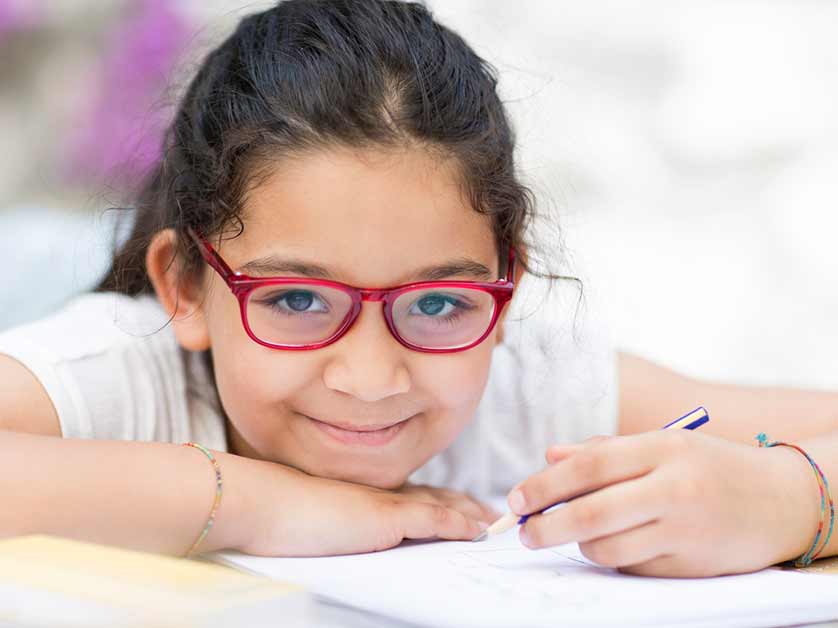Poor vision can greatly impact a child’s ability to learn. It’s a common issue, but thankfully one that can be addressed with early detection and intervention. Our resident optometrist at Spectrum Eye Care talks about how poor vision affects learning and what you can do to help.
The Connection Between Vision and Learning
Good vision is integral to a child’s learning journey. Your child’s ability to read the classroom whiteboard, focus on the text in books or even catch a ball during physical education all hinges on their eyesight. Some studies estimate that as much as 80% of learning in children is visual. So, with vision playing such a pivotal role, it’s no surprise that vision problems can create significant hurdles in a child’s educational journey.
-
Harder to Focus. Children with vision problems often have difficulty focusing on near and distant objects. They might squint or move their heads when trying to read a book or the classroom whiteboard. This can make it difficult for them to pay attention in class and learn effectively.
-
Poor Eye-Hand Coordination. Poor eye-hand coordination is a common symptom of vision problems in children and can have a significant impact on their learning. It can manifest as difficulty completing tasks that require precise hand movements, like handwriting, for example. This can affect a child’s confidence and may even lead to feelings of worthlessness, further hindering their ability to learn. Poor coordination can also be the result of underlying eye conditions, which can be detected and identified via an eye exam.
-
Low Self-Confidence. Additionally, vision issues can lead to decreased self-confidence and self-worth in children. When a child realizes that they have vision problems, they may feel like they are unable to keep up with their peers, which can lead to insecurity and decreased confidence. This can further affect their ability to learn, as some children may not be willing to take risks. They may also hesitate to participate in class activities if they feel like they will not perform as well as their peers.
Signs of Vision Problems in Children
Your child may not always realize or articulate that they’re having vision problems. So, parents and teachers need to be vigilant for signs. These might include squinting, sitting too close to the TV, difficulties with hand-eye coordination, or regular headaches.
Scheduling an eye exam is imperative if your child is experiencing these symptoms. Regular eye exams by a licensed optometrist are crucial because they can identify existing vision problems and make the necessary recommendations, including prescribing eyeglasses or contact lenses.
How an Optometrist Can Help
Our experienced optometrist from Spectrum Eye Care in Charlotte, NC, can diagnose and advise on how to protect and enhance your child’s vision. If you are concerned about your child’s eyesight, don’t hesitate to contact us at (704) 543-9000, or reach us online to set an appointment. We are here to help your child see clearly and succeed! Count on us for your other eye care needs as well, including LASIK eye surgery evaluation and post-op care.

